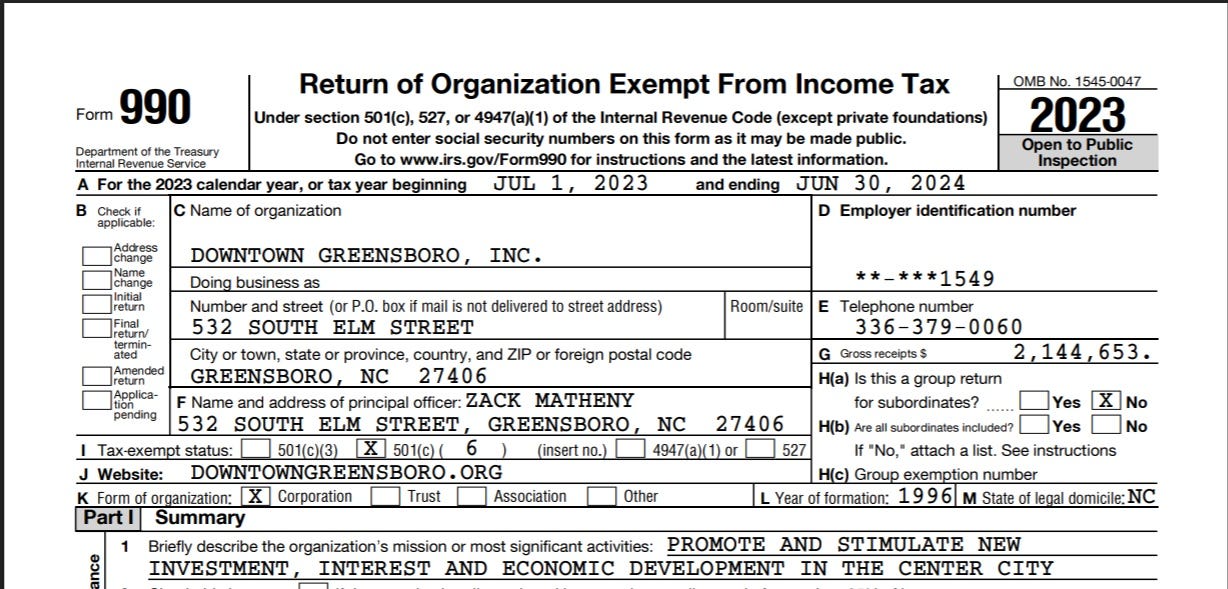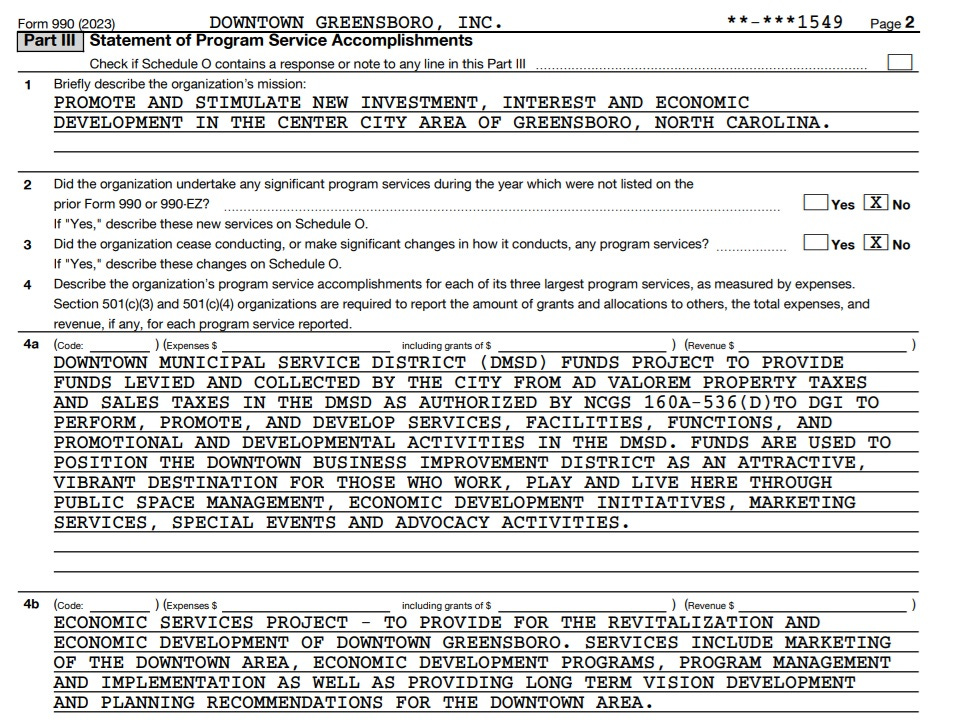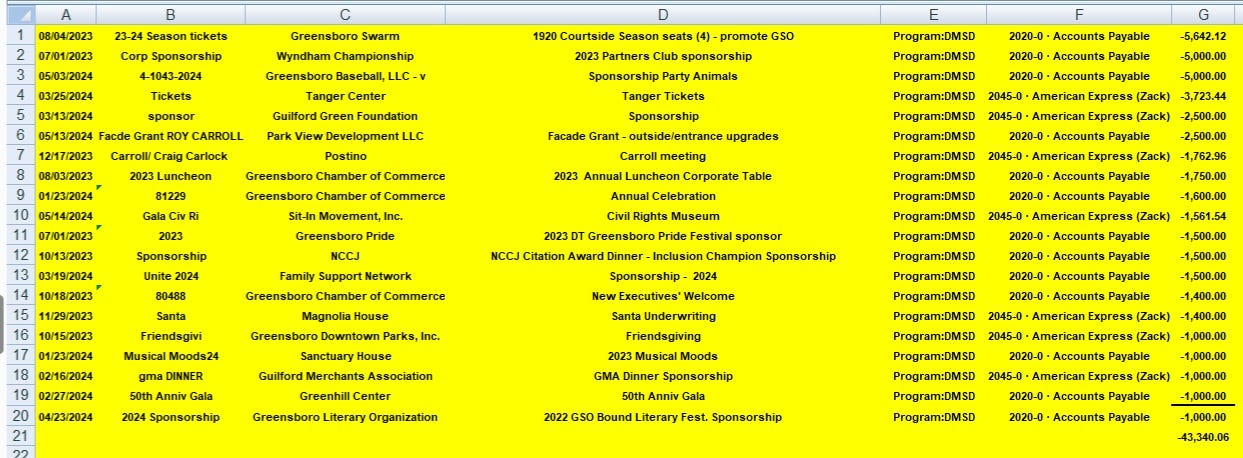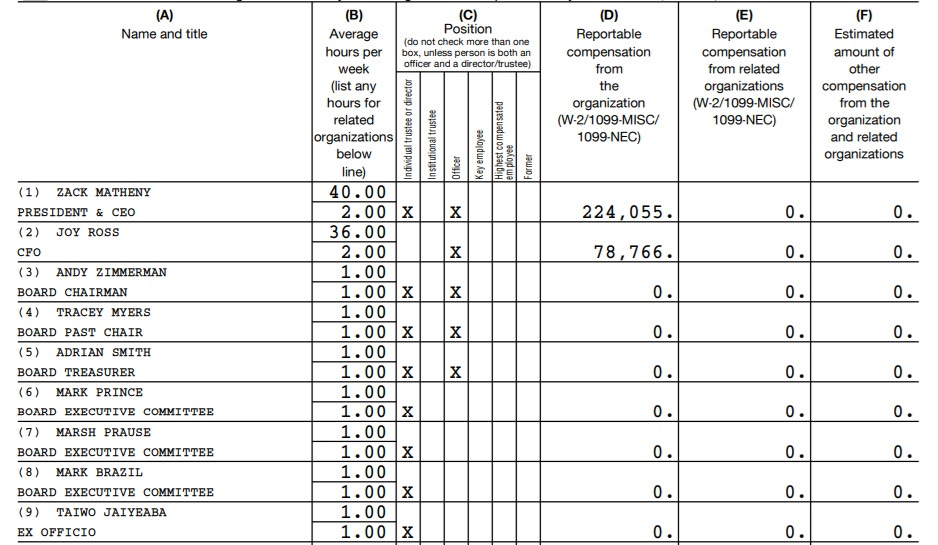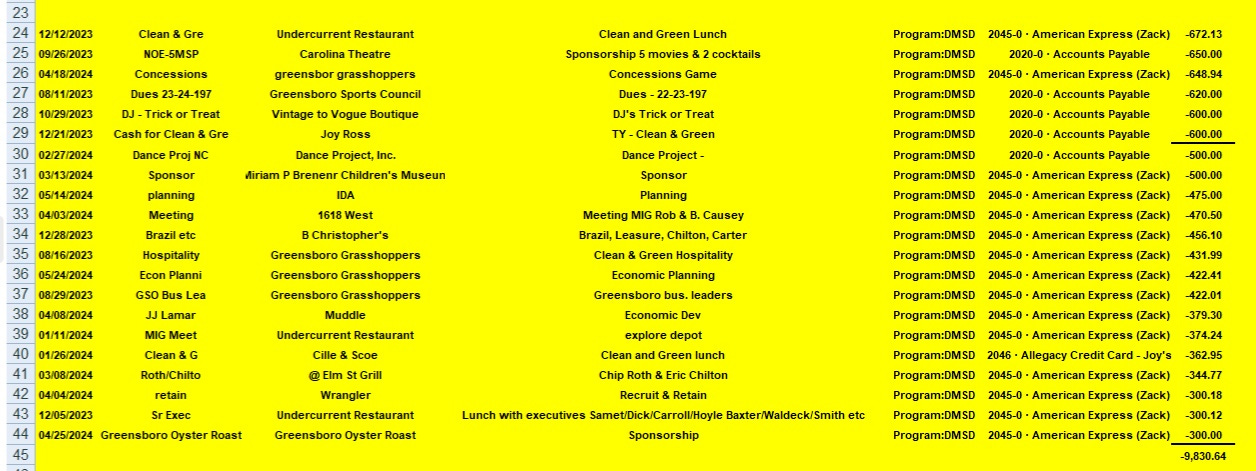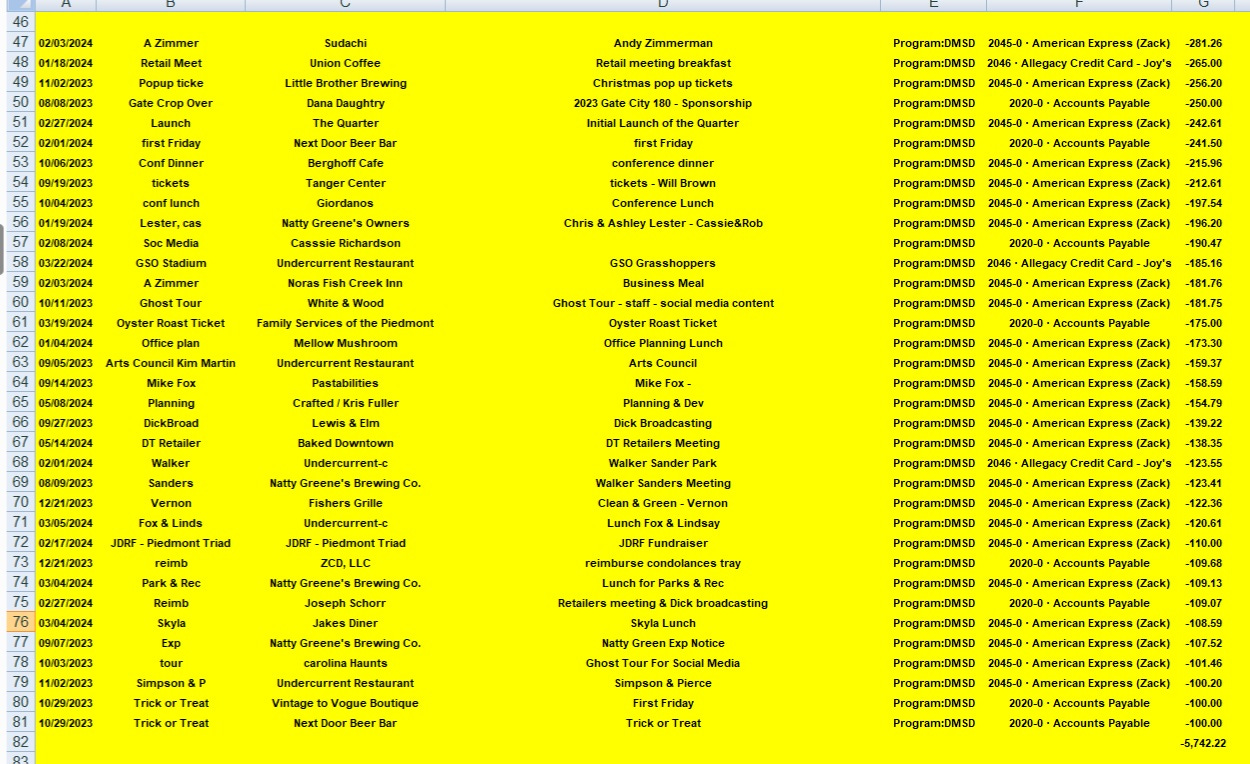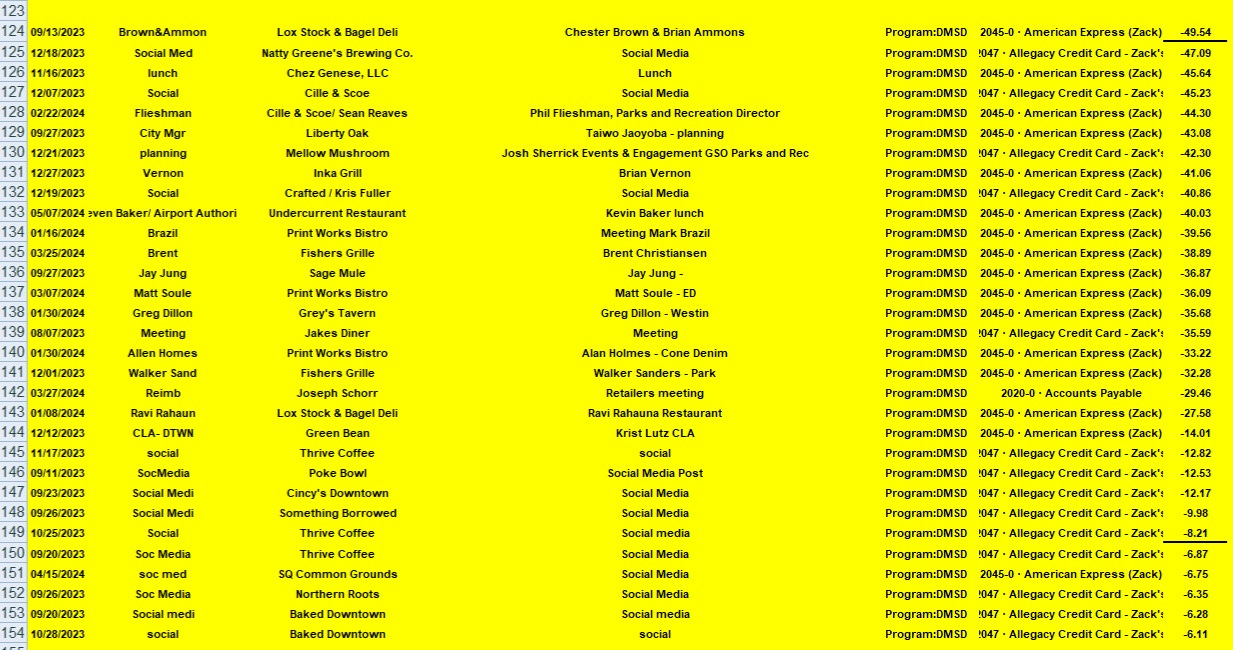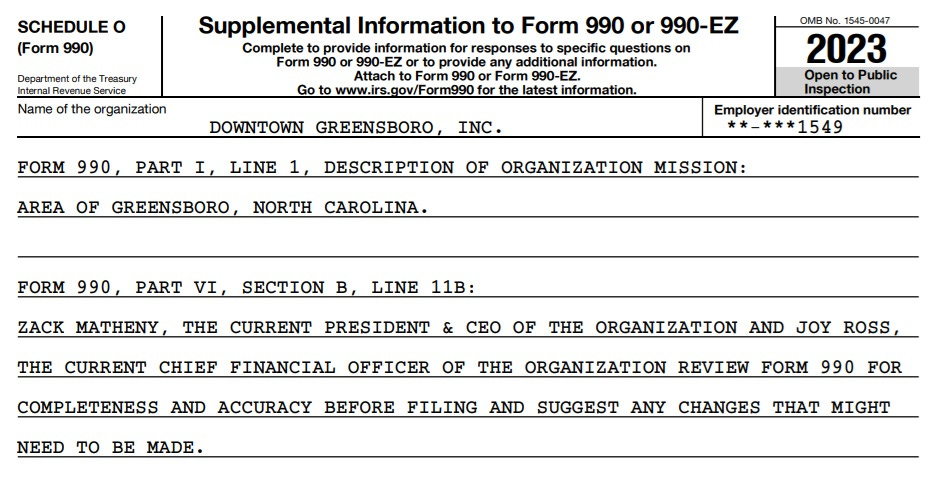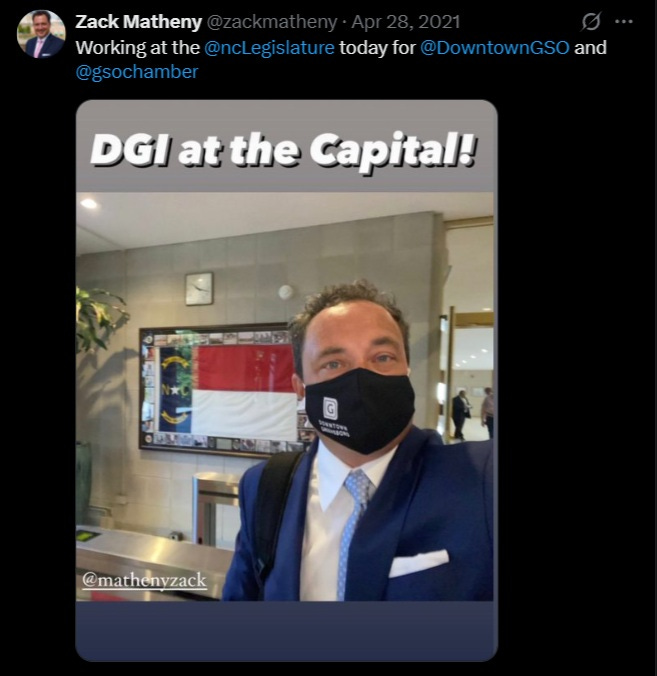$3K in Bus Tickets, $40K in Perks, and No Lobbying Disclosed: DGI Faces Ethics Complaint After Latest Tax Return Released
Taxpayer-Funded Nonprofit Under Fire: DGI Accused of Lobbying Cover-Up and Improper Gifts
from: George Hartzman
to: "Howell, Torie", "Baker, Tony"
cc: SEI@ethics.nc.gov, lobbyist@sosnc.gov
bcc: Joe Killian, Gale Melcher, Zack.Matheny, Nancy.Vaughan, coordinatedentry@partnersendinghomelessness.org, secretarynaacpgso, contact@acluofnc.org, opengov@ncdoj.gov, trey.davis, Watts, Chuck, Kevin Griffin, Gladys.Robinson, Harrell, Andrea, bellamysmall, Hayes, Deena, Allen Johnson, FrankieTJones and Skip Alston among others
I am writing to formally request an investigation into Downtown Greensboro Incorporated (DGI), a tax-exempt 501(c)(6) organization funded by compulsory taxpayer assessments through the Downtown Municipal Service District (DMSD) in Greensboro, NC.
Summary of Concerns:
1. DGI has failed to disclose lobbying activities on its most recent IRS Form 990 for the fiscal year ending June 30, 2024, [released on June 12, 2025], despite publicly funded “advocacy activities” cited in its mission.
Additionally, DGI appears to have provided meals, event tickets, and entertainment to city officials—potentially violating North Carolina’s strict public gift ban (N.C.G.S. § 138A-32) and IRS private benefit rules.
The attached latest 990, provided by DGI, was received yesterday, June 12, 2025, covering July 1, 2023 to June 30, 2024, which matches the same time frame of the DGI ledger released by the City of Greensboro [on May 20, 2025].
The organization’s CEO, Zack Matheny, concurrently serves as a Greensboro City Councilmember. This dual role presents a conflict of interest, particularly when DGI seeks funding or policy outcomes from the same body on which he votes.
Specific Issues and Violations:
Failure to Disclose Lobbying on Form 990 covering July 1, 2023 to June 30, 2024.
DGI reported no lobbying activity and did not file Schedule C on Form 990 covering July 1, 2023 to June 30, 2024, despite describing “advocacy activities” funded by public assessments.
[Schedule C (Form 990) is used by: Section 501(c) organizations.
These organizations must use Schedule C (Form 990) to furnish additional information on political campaign activities or lobbying activities.]
Lobbying expenditures that should have been disclosed include:
Direct meetings with elected officials,
Grassroots media and public influence campaigns,
Consultant or coalition fees to other lobbying organizations (e.g., Greensboro Sports Council dues),
Staff time and internal resources used for lobbying.
Violations of N.C.G.S. § 138A-32
DGI's 23-24 ledger shows over $40,000 spent on perks, including meals and event tickets.
Providing any gift or thing of value to public officials using public funds is strictly prohibited.
These expenses were not itemized or sufficiently explained in Schedule O, Part IX, or Schedule J of the Form 990 covering July 1, 2023 to June 30, 2024, the same time frame of the DGI ledger released by the City of Greensboro.
2. The discovery of $3,214.76 in Greyhound bus ticket expenses, incurred between July 2023 and June 2024 under the Downtown Municipal Service District (DMSD) program, raises significant concerns regarding DGI's transparency and compliance with IRS reporting requirements.
These expenses, paid via "American Express (Zack)," included within a total of $224,981 for the "4115 · Downtown Ambassador Program BBB", are not disclosed in the Form 990 for the fiscal year ending June 30, 2024, particularly in Part III (Program Service Accomplishments) or Part IX (Functional Expenses), suggesting a potential material omission.
Given the Downtown Ambassadors' role in observing and reporting panhandling and suspicious activities, these bus tickets could plausibly be linked to an unreported program involving the relocation of homeless individuals, a significant activity that should have been detailed in the Form 990.
Conflict of Interest
CEO Zack Matheny’s simultaneous role as a city councilmember creates a conflict when:
DGI lobbies city council,
Public funds are used for events involving councilmembers [and City officials],
DGI advocates policies that financially benefit downtown stakeholders.
Requested Corrective Actions:
IRS Review: Require DGI to file an amended Form 990 that includes Schedule C, fully disclosing all lobbying expenditures.
Ethics Investigation: Determine whether DGI violated N.C.G.S. § 138A-32 by providing unlawful gifts to public officials.
Conflict Review: Examine whether Mr. Matheny’s dual role as CEO and councilmember violates conflict-of-interest statutes or fiduciary standards.
Transparency Enforcement: Require DGI to disclose detailed expense breakdowns for meals, entertainment and gifts in Schedule O.
Policy Review: Recommend that DGI adopt a formal gift policy and publicly disclose lobbying practices and expenditures.
Conclusion:
DGI’s failure to disclose lobbying and providing houseless interaction and transportation while receiving public funds, along with potential gifting violations and conflicts of interest, raises serious concerns about transparency, ethics, and compliance. I urge an investigation into these matters and take appropriate enforcement action.
I am happy to provide supporting documentation or additional details upon request.
Thanks,
g
George Hartzman
Hartzman Tax & Fiduciary
Contrarian Financial Consulting & Tax Preparation
30 Years Experience; Merrill Lynch & Wells Fargo Alumnus
Investment, College & Estate Planning
Debt, Property & Business Consigliere Advisory
Healthcare, Home, Auto & Business Assurance Consulting
Disclaimer: This report draws on publicly available records, official audits, vendor payment data, and election filings to highlight apparent gaps in oversight and potential conflicts involving publicly funded expenditures. Some financial records were not made available by the City of Greensboro or Downtown Greensboro, Inc. at the time of publication. As a result, certain spending remains undocumented in official reviews. References to individuals, businesses, or political campaigns are made strictly in the context of matters of public concern. No conclusions are offered beyond what the documented evidence supports, and any implications regarding intent, legality, or ethics are left for readers to assess based on the disclosed facts.


